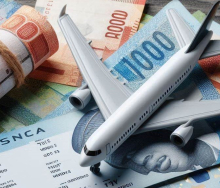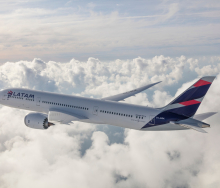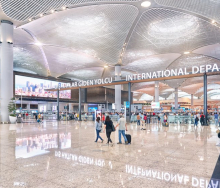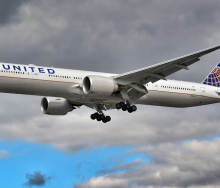Changes to Iata resolutions, and the introduction of the ‘pay before dispute’ ruling for ADMs is putting agencies around the world at risk of defaulting and being suspended from the BSP.
An excerpt from Resolution 6.10 of the latest Travel Agent’s Handbook under the topic of ADM disputes now states the following:
6.10.1.2 All validly disputed amounts will continue to form part of the billing and the agent must remit the disputed amount to the BSP on the Remittance Date notwithstanding the existence of the dispute.
6.10.1.3 All disputed amounts paid by the agent will be held by Iata for a period of 30 days or until the dispute is resolved, whichever is earlier.
Travel Agency Commissioner for Europe, Middle East and Africa, Andreas Körösi, told Travel News that the main principle in resolutions had always been that disputed ADMs (Resolution 812 & 6.6.7.3) “…will not be included in the billing”.
“This is how it should be since these are, by definition, commercial disputes, which Iata, due to anti-competition regulations, should not be a party to,” said Andreas.
He said a recent amendment in resolutions now required “disputed amounts” to be deposited with Iata (Resolutions 812 and 6.10.1.2) for up to theoretically two months, or until the dispute was bilaterally resolved.
A recent local casualty of the ‘pay before dispute’ resolution is Serendipity Tours, which was suspended from the BSP after failing to pay R5,5m in Kenya Airways ADMs, which the agency could not dispute until after the ADM bill had been settled. Earlier this month Travel News reported that the impact of the enormous ADM bill had pushed SWG’s group operations director, Dinesh Naidoo, to liquidate Serendipity Tours and to step down from his position as president of Asata.
“I have no insight if these specific ADMs are justifiable or not, I can only confirm that SWG is one amongst many agents who, in the past few months, have asked for a TAC review due to huge amounts in ADMs, which they are mandated to deposit or get defaulted. This issue is called the Post Billing Dispute and is the provision that Kenya Airways has invoked. Since Iata did not accept the suggested ‘leniency due to Covid-19’ to allow the dispute to be settled outside the BSP without the need to deposit, Serendipity defaulted and was suspended from all ticketing authority, even though all other debts to the BSP were settled,” explained Andreas.
“This office is not part of rule-making but when ADM amounts are unreasonably high, this office has on several occasions asked Iata, due to COVID-19 consequences, to temporarily waive the requirement to deposit amounts representing disputed ADMs. So far I have not received a response from Iata,” he added.
“This ruling is a further indication of the deep bias of Iata’s Travel Agency Programme, which is abusive in its nature as it one-sidedly manages risk to airline partners but not to agents. The programme is based on an agent-principal relationship where airlines, not agents, set the rules. By participating in the programme, agents are agreeing to abide by these rules,” said ceo of Asata, Otto de Vries.
Another agent, who wished to remain anonymous, told Travel News that it was in Iata’s best interests to maintain the biased ‘pay before dispute’ resolution changes, as the association stood to gain financially from agency defaults.
“After an agent defaults from the BSP, Iata sets up a repayment plan with the agent. I understand that they levy a 2% admin fee to compile the payment plan. The association also earns additional fees when the agency’s Iata licence is reinstated,” said the agent.
Perry Flint, of Iata’s corporate communications, said the ADM dispute process remained fundamentally unchanged, however.
“If any agents in the South African market have specific concerns relating to the ADM dispute process, they are welcome to raise them with the ADM team in Iata by email on admproject@iata.org. If any agent has an issue with an airline’s ADM policy, rather than with the Iata resolution, then it should take this up directly with the airline in question. Iata cannot interfere with individual airlines’ policies,” said Perry.
















